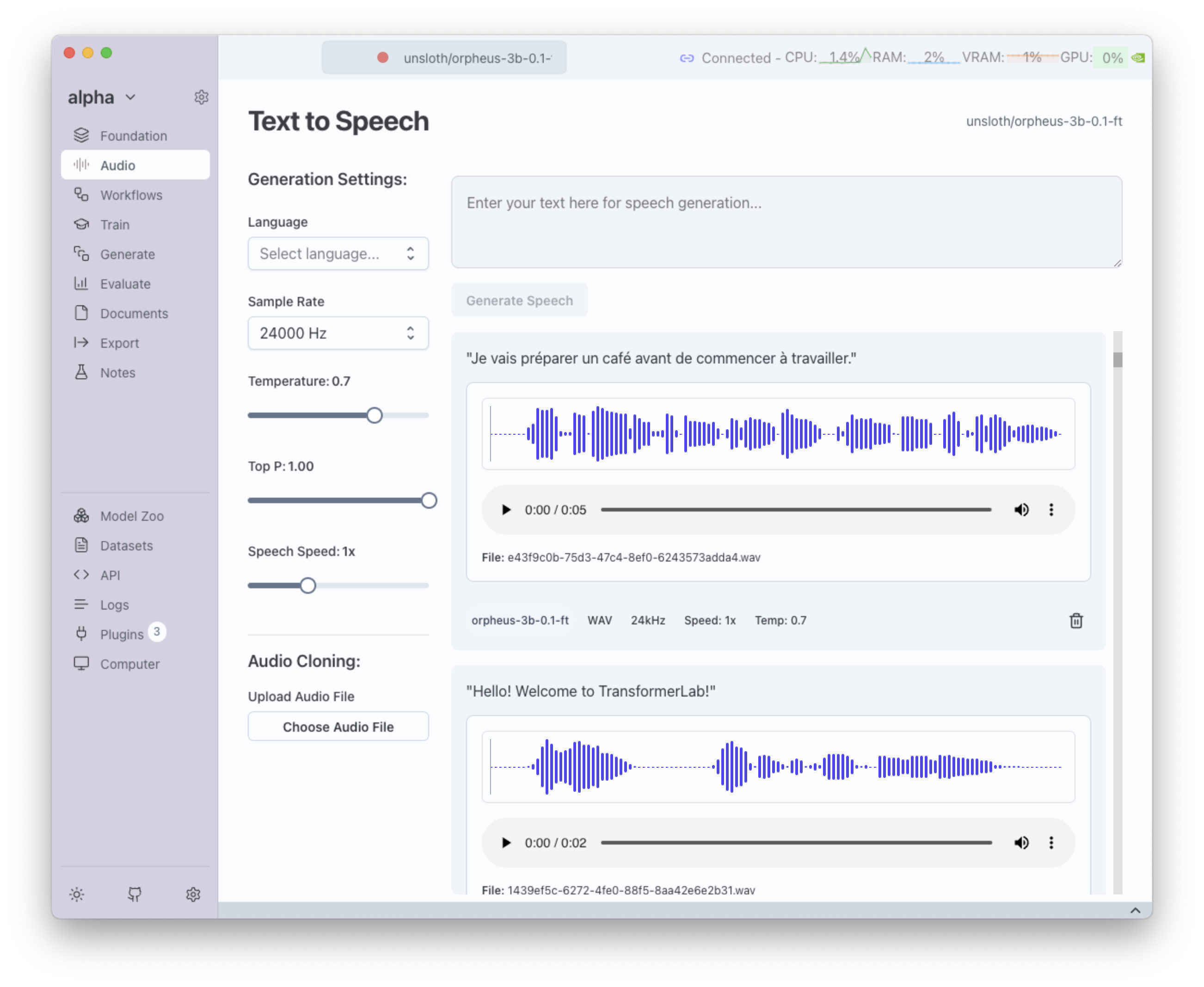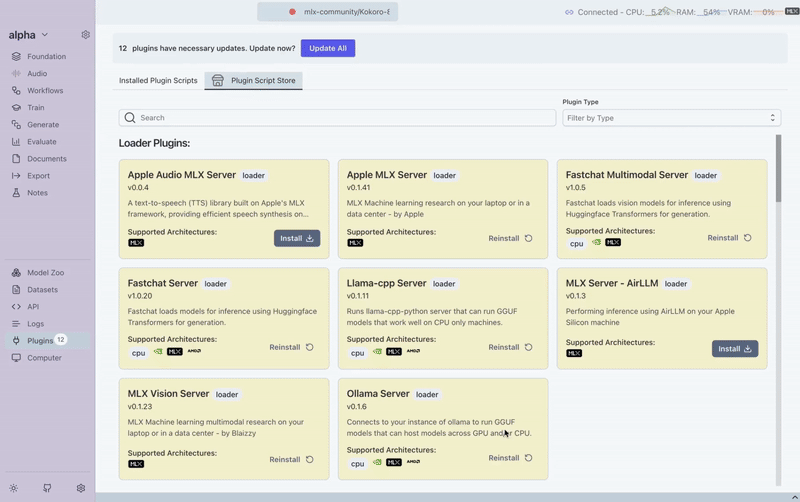Text-to-Speech (TTS) Generation
Transformer Lab supports Text-to-Speech (TTS) on MLX (Apple Silicon), CUDA (NVIDIA GPUs), and ROCm (AMD GPUs). This feature lets you convert plain text into natural-sounding speech directly inside Transformer Lab.

How It Works
-
Install the appropriate plugin:
- Apple Audio MLX Server (for MLX)
- Unsloth Text-to-Speech Server (for CUDA and ROCm)
-
Select a TTS model in the Foundation tab
-
Switch to the Audio tab
-
Enter text, adjust generation parameters, and generate audio
Supported Model Families
You can start generating audio today with the following models:
MLX (Apple Silicon)
- Kokoro → mlx-community/Kokoro-82M-4bit
- Dia → mlx-community/Dia-1.6B
- Spark → mlx-community/Spark-TTS-0.5B-bf16
- Bark → mlx-community/bark-small
- CSM → mlx-community/csm-1b
CUDA and AMD
- Orpheus → unsloth/orpheus-3b-0.1-ft
- CSM → unsloth/csm-1b
TTS Generation Process
Here's a visual guide to the TTS generation process in Transformer Lab:

This demonstrates the complete workflow from model selection to audio output generation.
Generation Parameters
When generating speech, you’ll see the following parameters:
- Text → The input string to convert into speech
- Sample Rate → Number of audio samples per second (higher = clearer audio)
- Temperature → Controls randomness; lower = consistent, higher = expressive
- Speech Speed → Adjusts pacing of speech (slower = clarity, faster = natural flow)
Some models expose extra controls for more flexibility:
- Audio Cloning → Provide a short reference sample to make the output mimic that voice
- Language → Choose the language for generation (if multilingual support is available)
- Voice → Select a specific voice style or speaker profile offered by the model
Next Steps
Learn how to train your own TTS models: